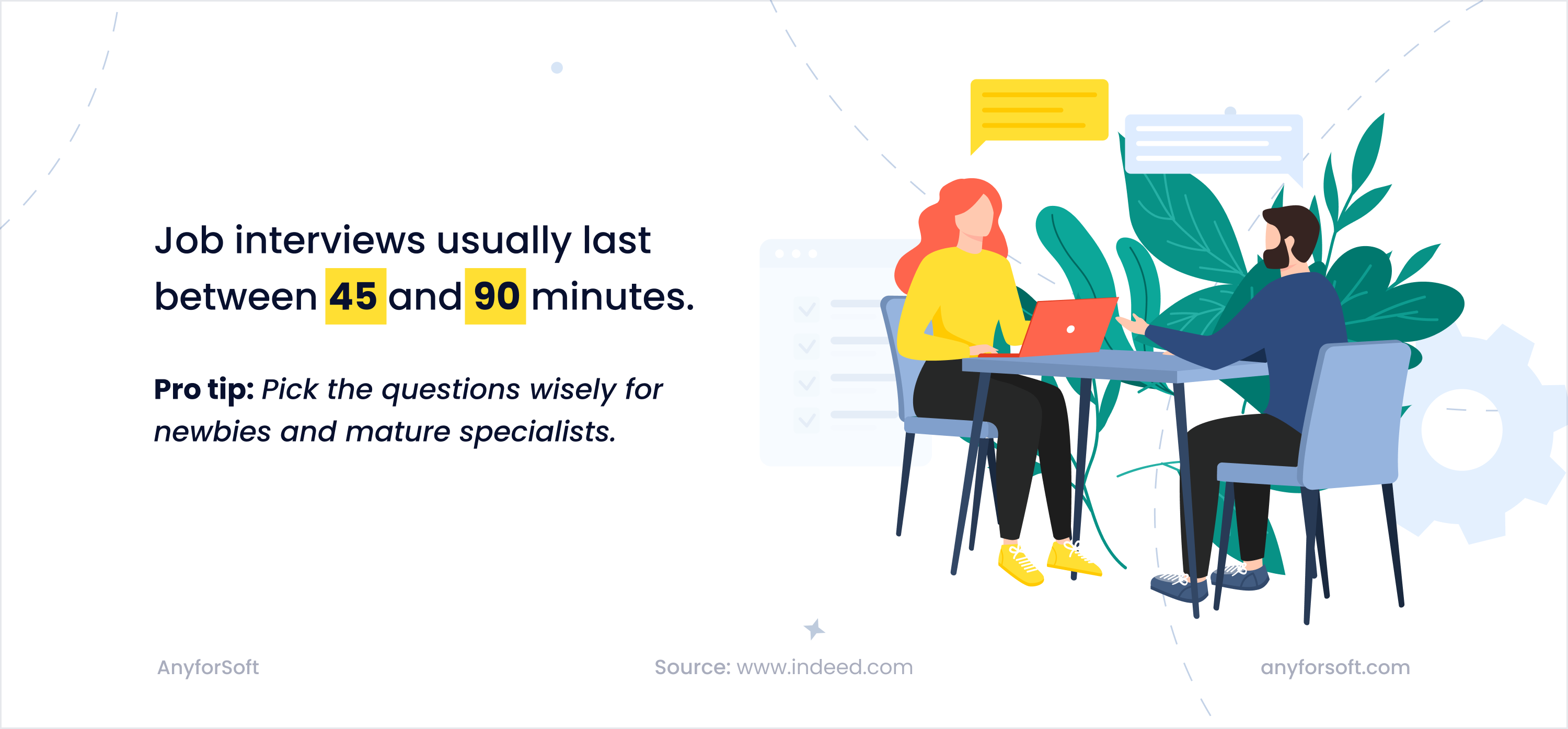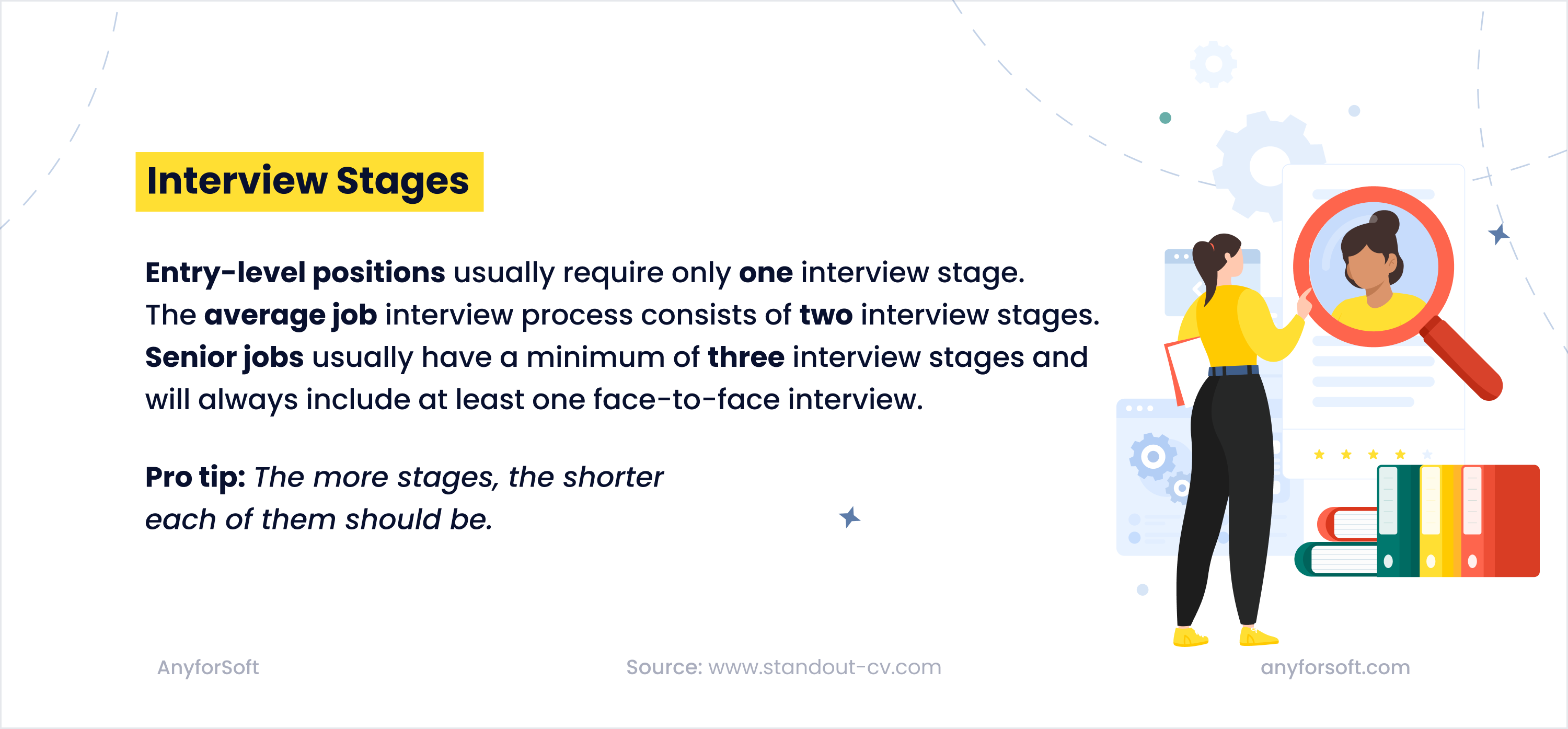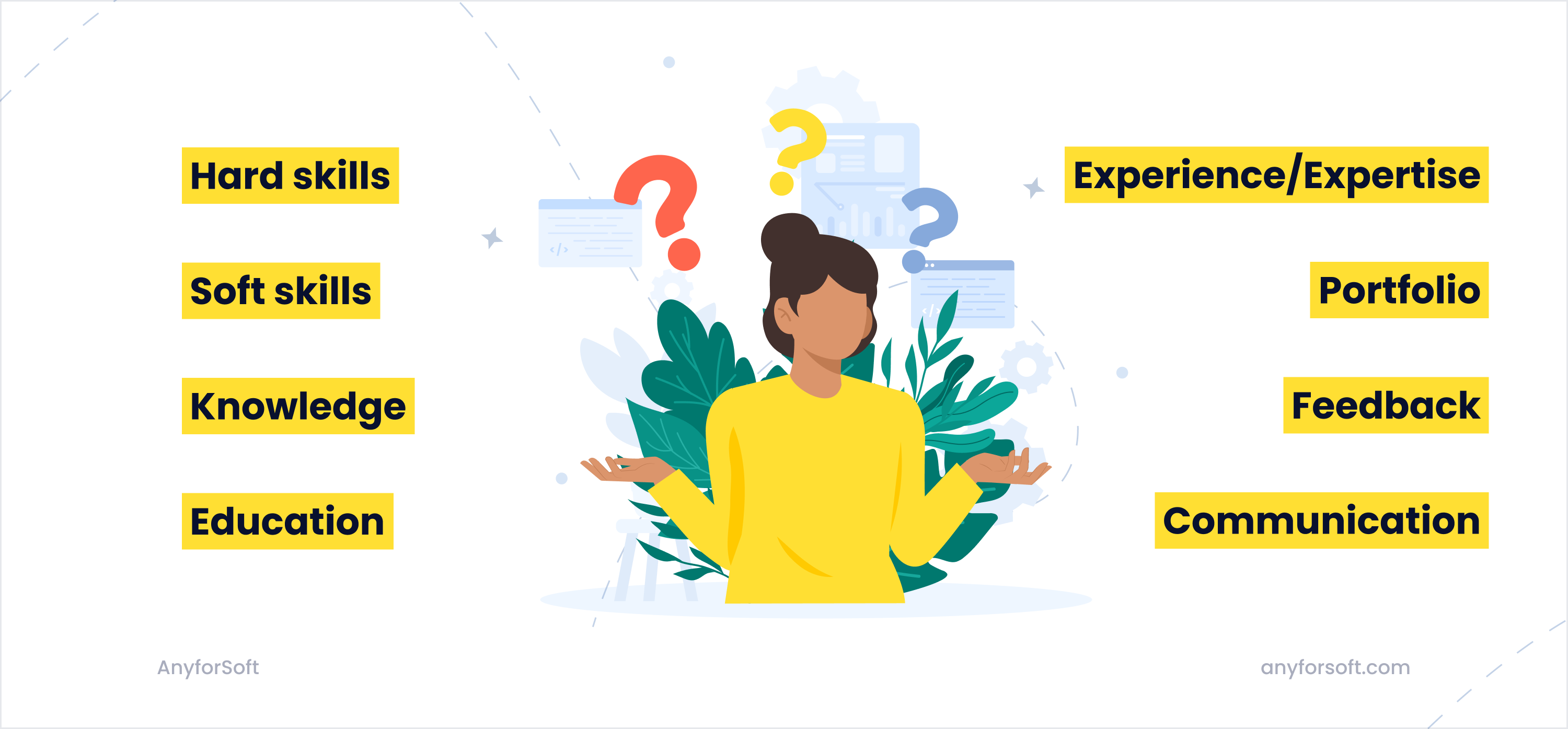When it comes to hiring a skilled Drupal developer, asking the right interview questions is crucial. Drupal is a powerful content management system (CMS) written in PHP that offers a wide range of features and flexibility. With so many professionals available in the world, the choice of the right person may be challenging. Here we will explore a comprehensive list of key topics and questions to ask during a Drupal interview.
What You Should Pay Attention To While Choosing A Developer
The main challenge lies in distinguishing the right talent for your project or team. Consider several options and core characteristics, including hard and soft skills and experience in a particular niche or industry.
Once you’ve decided on your scope and put it down in words for a job description, you can start looking for candidates. If you are looking for general specialists, starting with Drupal site builders might be a good idea. The skills of a site builder should, of course, include knowledge of PHP codes and JavaScript, frameworks, and basic project management. Business analysis and customer-related skills can be an advantage.
On the other hand, back-end developers should be skilled in coding and have knowledge of architecture, design, and development. They are generally capable of modifying or improving existing modules. And it’s definitely typical for a good developer to know HTML, CSS, Object-oriented PHP, and JavaScript. Also, before hiring a Drupal developer, you should ensure they have an existing history of contributing to the code.
The other Drupal-oriented specialists’ skills depend on their position and the aims of your project. Front-end developers should be mainly concentrated on the appearance of your platform, they might not be as proficient in coding as back-end devs, but they should know basic PHP, CSS, HTML, JS, and basic Drupal architecture. They also should take reasonable care to test across operating systems and devices.
You might ask, "What about the education of a candidate?" While a computer science or engineering background can be a great advantage, it’s not an obligatory condition nowadays. Many developers have learned most of the necessary skills by reading and practicing. At times, this kind of education might be more extensive than the university one, as the specialists can pick up on the newest technologies and any technological changes.
General Topics To Discuss With Candidates
When choosing a potential team member, it is necessary to assess his skills and knowledge comprehensively. Soft skills can often be seen during the interview process, and it is only sometimes worth focusing on. However, when it comes to experience, skills, and ability to apply them, you should be more attentive and precise in questioning.
It would be easier to divide the interview into several blocks and learn more about your candidate and their depth of knowledge of the technology, industry, and specific niche.
Block 1: Drupal CMS, Installation and Module Development
First, gauging a candidate's understanding of the Drupal installation process is essential. Ask about their familiarity with the necessary prerequisites and recommended configurations for a successful installation. Additionally, delve into their knowledge of Drupal as a content management system, highlighting its key features and advantages. Explore their experience developing custom Drupal modules, their understanding of contributed modules, and how they extend Drupal's functionality using PHP.
Block 2: Drupal Distributions, Cron, and Cache
Moving forward, evaluate a candidate's expertise in working with Drupal distributions. Inquire about their understanding of the differences between a standard installation and distributions and if they have hands-on experience with specific distributions. Assess their knowledge of Drupal's cron system, including configuring and managing tasks efficiently. Furthermore, explore their understanding of the Drupal caching system, including best practices for configuration and management to optimize performance.
Block 3: SEO, User Permissions, and Security
Search Engine Optimization (SEO) is a crucial aspect of any website. Ask candidates how Drupal supports SEO and what strategies they would employ to improve a site's search engine visibility. Inquire about their approach to managing user permissions and access control within Drupal, ensuring they fully grasp Drupal's permission system. Additionally, assess their understanding of security measures and best practices in Drupal, including their familiarity with common vulnerabilities and how to mitigate them.
Block 4: Theme and Templates, Hooks, and System Architecture
A candidate's proficiency in Drupal theming and template customization is essential. Ask about their experience creating and customizing Drupal themes and whether they have worked with popular theme frameworks. Gauge their knowledge of Drupal hooks and how they are used to interact with core modules and functionality. Furthermore, delve into their understanding of Drupal's system architecture, including conceptual layers, database systems, and the relationship between custom modules and core functionality.
Drupal Interview Questions for Freshers
To ensure your desired candidate fits perfectly within your organization, ask them some specific questions. These Drupal developer interview questions are designed to assess a fresher's familiarity with the technology, their ability to apply their knowledge in practical scenarios, level of collaboration and communication skills, and problem-solving approach. Additionally, you can consider practical coding exercises or assignments to evaluate their technical abilities further. And, of course, don’t forget to ask for portfolios and feedback from previous projects.
- What versions of Drupal have you worked with during your training or personal projects?
Look for candidates with experience with the latest version of Drupal, as it indicates they are up-to-date with the platform's advancements and improvements. - What was your role or responsibility in the development of those Drupal projects?
Freshers should clearly articulate their role in the development of sites. They should demonstrate knowledge of site building, theming, custom module development, or other relevant tasks. - How would you approach optimizing a website's performance to improve its speed and efficiency?
Developers should offer strategies to optimize Drupal performance, such as implementing caching techniques, utilizing content delivery networks (CDNs), optimizing database queries, or leveraging Drupal's built-in performance optimization features. - Based on your learning experience, which Drupal modules do you find helpful and would recommend to customers? Why?
Drupal engineers should suggest Drupal modules based on their understanding of specific customer needs. Look for candidates who can explain the benefits and features of the modules they recommend. - Have you worked with Views in Drupal? If yes, please provide an example of how you used Views in a project or describe its purpose and functionality.
Developers should describe their experience using Views, a powerful module in Drupal for creating custom queries and displaying data. They should provide an example of utilizing Views to meet a specific project requirement. - Did you collaborate with individuals or teams during your training or personal projects? If yes, describe the nature of the collaboration and your role in the project.
Newbies should describe their experiences collaborating with others, such as designers, developers, or clients. Look for effective communication, teamwork, and the ability to work well with diverse stakeholders. - Have you integrated any third-party applications or web services with Drupal during your training or personal projects? If yes, which ones did you work with, and how did you handle the integration?
It will be a plus if engineers mention any experience integrating third-party applications or services with Drupal. Look for candidates who can explain the integration process and its benefits to the project.

Remember, the Drupal interview questions and answers may vary based on your specific project requirements and the skill level you are looking for. Consider these guidelines as a starting point and tailor your evaluation criteria to meet your needs.
Drupal Interview Questions For Experienced

When you are looking for someone more mature in Drupal technology, you’ll need a bit more specific information about a candidate. We’ve collected and explored some common interview questions for an experienced Drupal developer. These questions aim to assess the candidate's knowledge and proficiency in handling various aspects of Drupal development, security, performance optimization, migration, and more. By providing short preferable answers to these Drupal interview questions, we can gain insights into the candidate's expertise and ability to apply Drupal best practices in real-world scenarios.
- How would you handle security vulnerabilities in Drupal?
The short answer is to stay updated with Drupal's security advisories and promptly apply patches or updates. Also, follow secure coding practices, use strong passwords, and implement necessary security modules like the Security Kit (SecKit) or the Drupal Security Review module. - What are the critical considerations for optimizing Drupal performance?
Key considerations for optimizing Drupal performance include implementing caching techniques, utilizing a CDN for static assets, optimizing database forms and queries, enabling performance-enhancing modules like Boost or Varnish, and using CSS/JS aggregation for faster page loading. - Can you explain the concept of Drupal hooks and provide an example?
Short answer: Drupal hooks allow modules to interact with core functionality or other modules. An example is hook_form_alter(), which allows modifying form elements and behaviors. It's commonly used for altering form submissions, adding validation, or customizing form elements. - How would you handle a Drupal website migration from one version to another?
The candidate should stand for a comprehensive approach by thoroughly analyzing the existing site and modules to identify compatibility issues. Then, plan a step-by-step migration strategy, ensuring data integrity and compatibility with the new Drupal version. It is recommended to leverage migration tools like the Drupal Migrate API and custom scripts as needed. - Explain the concept of Drupal distributions and their advantages.
Drupal distributions are pre-packaged installations that include Drupal core, contributed modules, themes, and configurations tailored for specific use cases (e.g., e-commerce, education). Their advantages include saving time by providing a starting point, ensuring best practices, and offering a feature-rich platform without requiring extensive configuration. - How would you handle multilingual functionality in Drupal?
The short answer is to enable the multilingual features in Drupal core and configure language settings, use the Entity Translation or Content Translation modules to translate content, implement multilingual menus, and use language-specific blocks or views to provide a localized experience. - How do you approach Drupal module development, and what development tools do you prefer?
Following the Drupal coding standards and best practices would be preferable while developing modules. For example, use Drupal Console or Drush for command-line interactions and tools like Git for version control, and leverage debugging tools like Xdebug or Drupal's built-in error reporting to troubleshoot and ensure custom code quality.
Conducting a well-structured interview with an experienced Drupal developer is recommended to provide valuable insights into their skill set and suitability for your project. Remember to customize the Drupal interview questions based on your specific project requirements to ensure a successful hiring process. By selecting the right candidate, you can confidently move forward with your Drupal project, knowing that you have a skilled professional who can contribute effectively to its success.
What Should You Watch Out For When Hiring Drupal Developers

First, as we already mentioned, their skill set is essential. You need to find someone with more knowledge or skills, in general, to have the work done properly. At the same time, if you find someone with a lot of experience, you might end up paying too much.
Another significant point for the hiring company is the candidate's experience. They might be gurus in PHP programming in the world and have the ability to write custom PHP codes, but if they have never worked with Drupal, hiring them will make no sense. No certifications, short-term courses, or even work in a neighboring field can substitute for working experience.
Look at how confident the developer’s answers were. If something seems unclear to you or confusing, don’t hesitate to double-check with them. After you’ve been provided with an example of work done by the coder, make sure it actually belongs to them. And if it does, take some time to check the quality and try to get feedback from the customer. This will give you a better understanding of how easy it is to work with the person and how good they are at their job. But be careful, as customers are not always easy to work with, and reviews might not represent the actual situation.
If you have sufficient knowledge or have someone on your team who knows how to check the involvement of a particular developer in the improvement of modules, do that as well. Reliable developers for hire generally should have an excellent portfolio of their achievements. Unless, of course, they are just starting.
How And Where To Hire Drupal Developers
Of course, you can simply google companies or specialists dealing with Drupal. But the number of search results will be so overwhelming that it might take a lot of work to deal with. It might take time to pick the best company or individual quickly. There are a few resources that can be a big help in choosing a coder to develop your website.
- You can start with forum messages at Drupal.org. Three threads can supply you with information on candidates. They are “Show off Your Drupal Site”, Community Spotlight, and Drupal Marketplace. Each of them provides a good overview of individuals in the community.
For instance, the “Show off your Drupal site” thread is dedicated to specialists showing their actual work. The projects presented range from beginners to experts. Additionally, there is a section called “Case Studies.”
The “Community Spotlight” is a hunting place if you are looking for exclusive talent. In this thread, the great talents are pointed out by their own peers. Others endorse representatives who made a significant or extremely useful contribution to the community.
The “Marketplace” thread is pretty straightforward. There are close to 1,000 companies listing their services. You can see the information about how many people in the company are involved in Drupal and review some case studies.
-
LinkedIn can also be a source to look for talent. A search within the network allows you to get all the basic information about the person before contacting them. The platform provides a CV in a general format, including previous experiences and educational background. You can also see what the developer has been endorsed for by other users.
-
Another solution, which is quite popular lately, is platforms like Upwork. They present a good pool of individual contractors from all over the world. They take good care in choosing people for the platform, as their reputation depends on that. So, generally, you will find developers with high-quality skills on those platforms. However, it's probably not the best place to search if you need a team or a company.
Conclusion
Searching for talent always starts with distinguishing your tasks and other conditions. This prerequisite will allow you to match the requirements later with the actual abilities. It is hard to create a straightforward guide on how to interview a perfect Drupal developer since the challenge lies in the question of what tasks the developer will be responsible for. Nevertheless, some practices and questions in this article will help you to evaluate the candidate.
If you are looking for an experienced developer or a mature Drupal development company, we are here to assist you: our product development team that cares about your high performance and success is ready to transform an idea into a valuable solution. Explore success stories or contact our managers to discuss your requirements and goals.
